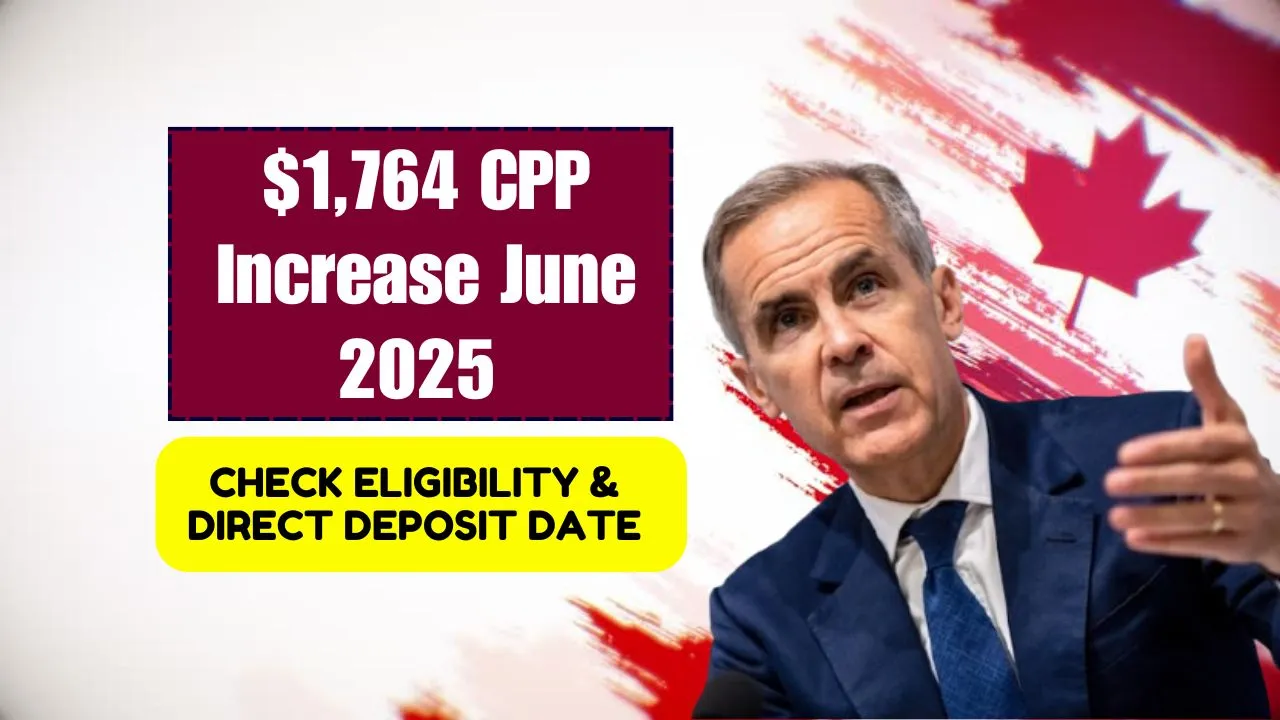$1764 CPP Increase June 2025 brings hope to many Canadians preparing for retirement. While rumours swirl about this amount, it’s essential to understand what’s confirmed, what’s pending, and how you can access your benefit. Read on to separate fact from speculation and find clear guidance.
This article breaks down the key details surrounding the $1,764 CPP Increase June 2025, including who qualifies, when payments arrive, how to apply, and what’s been verified by official sources. We’ve distilled the complexities into a simple guide so you can stay informed.
$1,764 CPP Increase June 2025
The $1,764 CPP Increase June 2025 has caught the attention of many Canadians nearing retirement, especially those who are calculating how much income support they can rely on in the coming years. While the figure has yet to be officially verified by the CRA, discussions around it highlight the importance of understanding your CPP entitlements. This potential increase reflects a broader trend of adapting public benefits to meet the rising cost of living and ensuring that seniors can maintain a decent standard of living. Anyone interested in maximizing their retirement income should monitor updates related to the $1,764 CPP Increase June 2025 and review their contribution records to see how they might benefit.
$1,764 CPP Increase June 2025 Overview Table
| Item | Details |
| Proposed Amount | $1,764 monthly CPP benefit |
| Payment Month | June 26, 2025 |
| Eligibility Age | 60 years or older |
| CPP Contributions | At least one valid contribution |
| Residency Requirement | Contributions made during work in Canada |
| Payment Method | Direct deposit or online |
| Official Confirmation | Not yet released by CRA or Government of Canada |
| Maximum Benefit Criteria | Full CPP requires 39+ years of maximum contributions |
Who is Eligible for the $1,764 CPP Increase June 2025
To receive the $1,764 CPP Increase June 2025, claimants must meet these conditions:
- Age: Must be at least 60 years old.
- CPP Contributions: Must have made at least one valid contribution during working years.
- Canadian Work History: Ideally, contributions should come from employment in Canada.
- Contribution Record: The amount of benefit depends on years of payment and age of retirement; full amount needs at least 39 years of contributions.
If you retire early (before age 65), your CPP payout will be reduced. Waiting until after age 65 may increase your monthly payment.
CRA CPP Increase 2025: Overview
The Canada Pension Plan is funded by contributions from employers, employees, and self-employed individuals. While the widely cited figure of $1,764 hinges on the assumption of maximum contributions over time, this exact amount hasn’t been confirmed by official sources. If it is authorized, it would reflect the maximum monthly benefit for someone who contributed in full for a minimum of 39 years. Real pension amounts vary based on individual work history and retirement age.
Process to Apply for Increased CPP Benefits in 2025
If you meet the criteria, you can apply for CPP benefits as follows:
- Online Application
- Sign in to My Service Canada.
- Go to the CPP application section and follow prompts to apply.
- Paper Application by Mail
- Request a CPP form from a Service Canada office or download it from their website.
- Complete the form and mail it to the listed address.
Apply up to 12 months before your chosen pension start date for timely processing.
CRA $1,764 CPP Increase June 2025 – Payment Schedule
Here are the scheduled payment dates for 2025, including June:
- January 29
- February 26
- March 27
- April 28
- May 28
- June 26
- July 29
- August 27
- September 25
- October 29
- November 26
- December 22
If approved, the $1,764 CPP Increase June 2025 would be directly deposited on June 26, 2025.
$1,764 CPP Increase June 2025 – Fact Check
- As of now, no official confirmation from the Canada Revenue Agency (CRA) or Government of Canada supports the $1,764 figure.
- These claims remain unverified rumors, and the announced CPP benefit increases haven’t specified this exact amount.
- If the increase is officially approved, it will likely impact both senior citizens and the broader Canadian economy.
